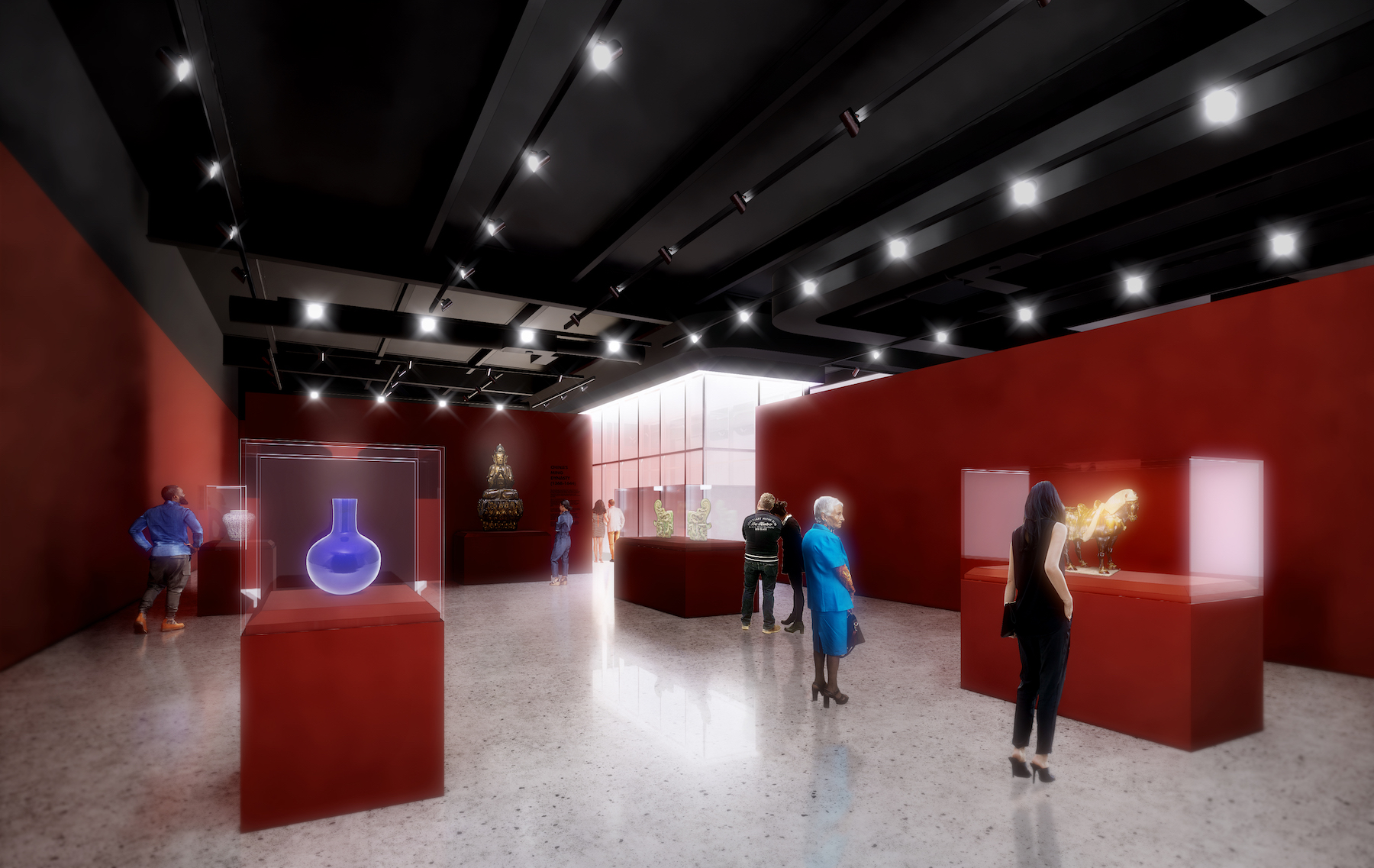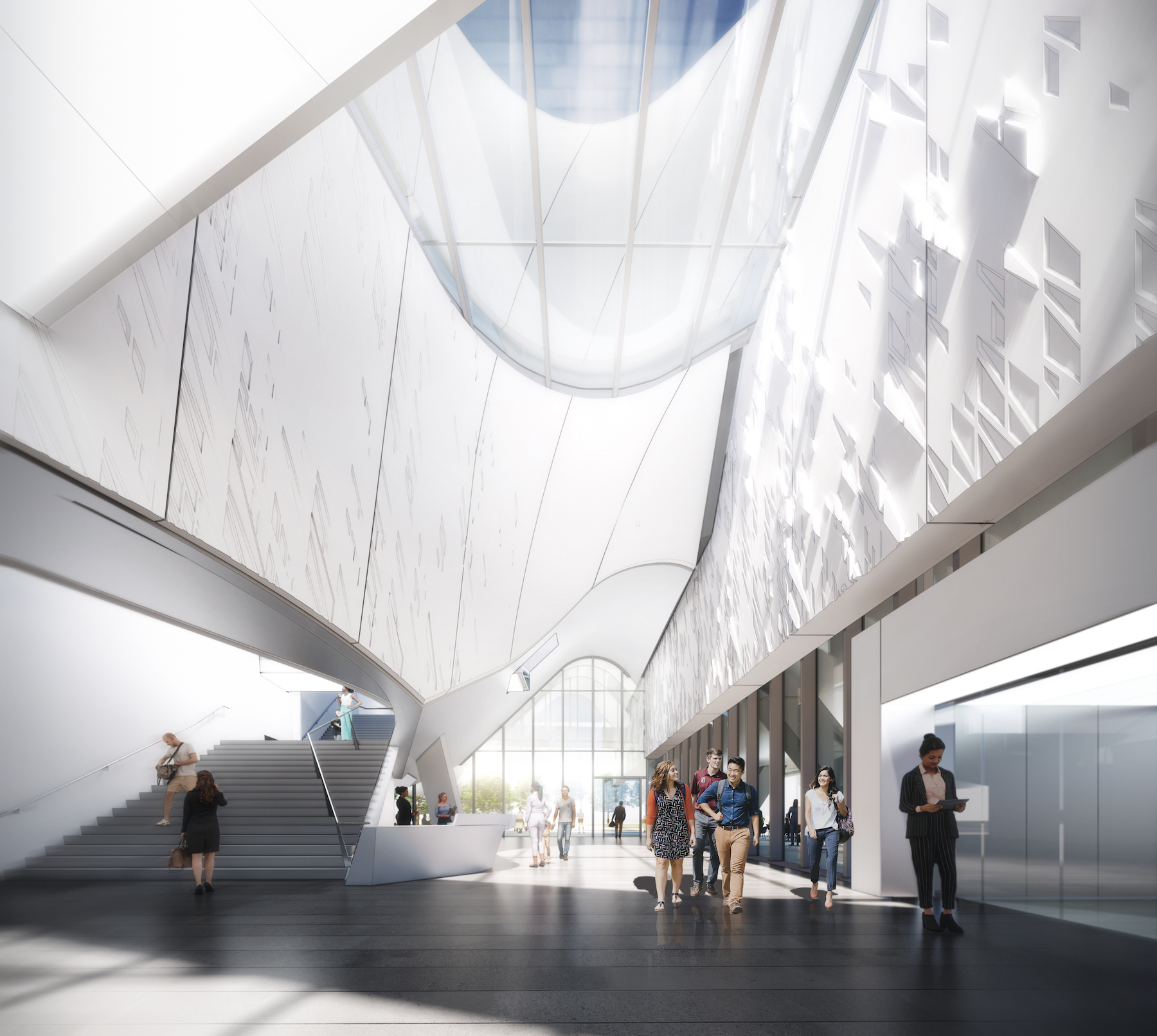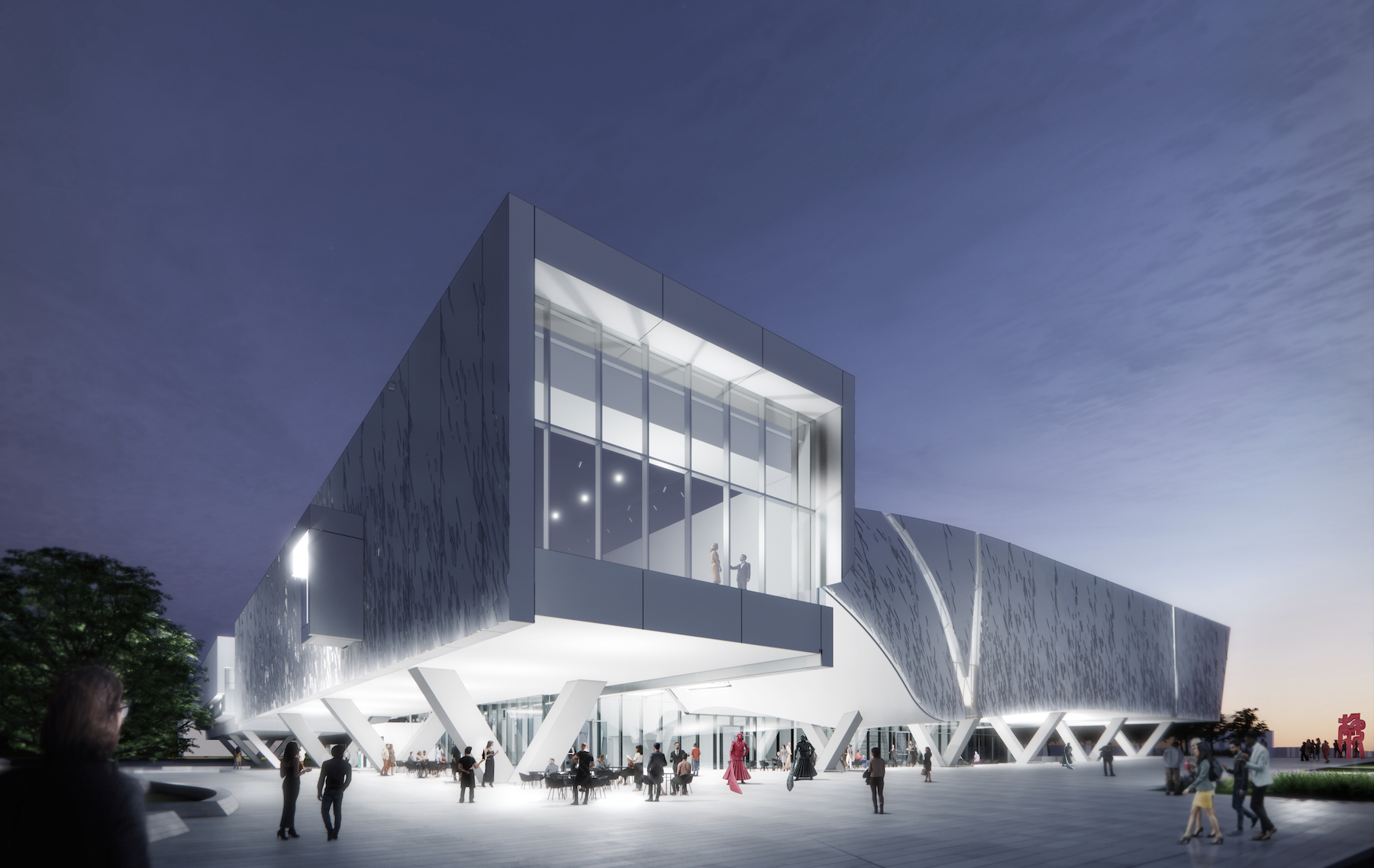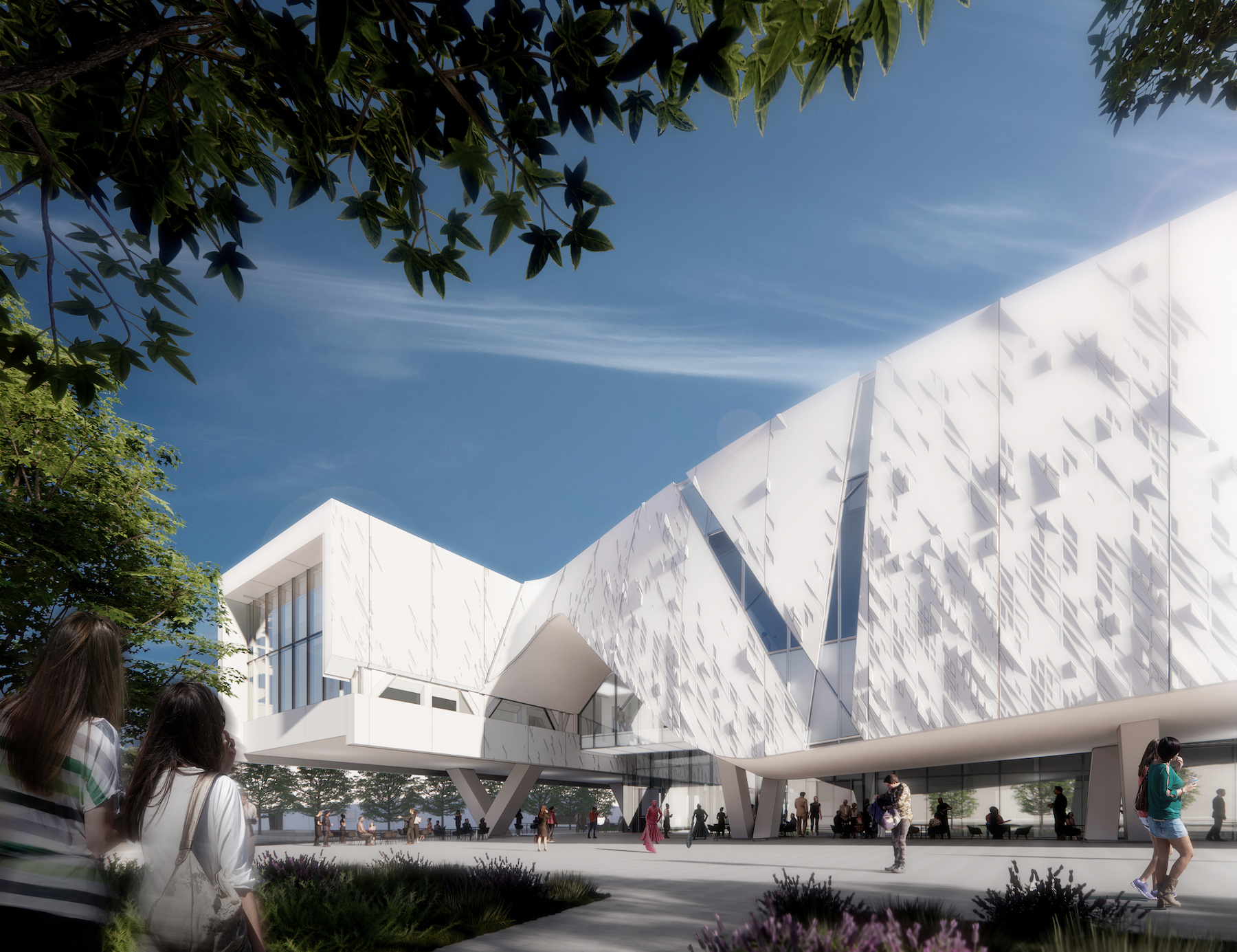The University of Texas at Dallas (UT Dallas) recently broke ground on the Crow Museum of Asian Art, the first phase of a new 12-acre cultural district on campus. The Edith and Peter O’Donnell Jr. Athenæum will be an arts destination for students, faculty, and community.
Designed by global architecture and design firm Morphosis, the arts campus will create a new gateway to the university and include a performance hall, a museum for the traditional arts of the Americas, a central plaza, and a parking structure. The Athenaeum is part of a significant period of growth of the arts at UT Dallas, a school that has historically focused on science, engineering, technology, and business.
The cohesive and dynamic vision for the Athenæum is intended to establish UT Dallas as a cultural hub with outdoor features including landscaped gardens, tree-lined walkways, paved open spaces with benches and water features, an amphitheater, and public sculptures. The plan knits together the buildings within the Athenæum and provides important pedestrian connections to the rest of the campus.
The two-story, 68,000 sf Crow Museum, which includes 12,000 sf of contiguous outdoor space for programs and events, will be completed in Phase I in 2024. It will have 16,000 sf of flexible gallery space to display the collection’s diverse selection of Asian art with ancient and contemporary works from Cambodia, China, India, Indonesia, Japan, Korea, Myanmar, Nepal, Pakistan, Thailand, Tibet, and Vietnam. The museum will also house a state-of-the-art conservation lab, classroom spaces, administrative offices, and the Brettell Reading Room.
Another building, a two-story 53,000 sf performance hall, will include a 600-seat concert venue, practice rooms, choral and orchestra rehearsal rooms, to be constructed in Phase II. A two-story 50,000 sf museum for the traditional arts of the Americas will be completed in Phase III. A three-story 1,100-car parking structure with two levels above grade and one basement-level walk-out will serve the Athenæum and campus.
The three cultural buildings are designed with second floors that are larger than the ground floor, creating covered exterior spaces that can be used for studying, building entry, daytime and nighttime events and gatherings, performances, art display, and everyday campus life. Each building is clad with white precast concrete panels featuring a three-dimensional pattern created through an innovative process designed by Morphosis.
Building Team:
Owner: University of Texas at Dallas
Design architect: Morphosis
Architect of record: GFF
Design MEP Engineer: Buro Happold
MEP Engineer of Record: Campos Engineering
Structural engineer: Datum Engineers
General contractor/construction manager: The Beck Group



Related Stories
| Aug 11, 2010
Museum celebrates African-American heritage
The Harvey B. Gantt Center for African-American Arts + Culture recently completed construction on the Wells Fargo Cultural Campus in Charlotte, N.C. Designed by the Freelon Group, Durham, N.C., with Batson-Cook's Atlanta office as project manager, the $18.8 million project achieved nearly 100% minority participation.
| Aug 11, 2010
Design for Miami Art Museum triples gallery space
Herzog & de Meuron has completed design development for the Miami Art Museum’s new complex, which will anchor the city’s 29-acre Museum Park, overlooking Biscayne Bay. At 120,000 sf with 32,000 sf of gallery space, the three-story museum will be three times larger than the current facility.
| Aug 11, 2010
Thom Mayne unveils ‘floating cube’ design for the Perot Museum of Nature and Science
Calling it a “living educational tool featuring architecture inspired by nature and science,” Pritzker Prize Laureate Thom Mayne unveiled the schematic designs and building model for the Perot Museum of Nature & Science at Victory Park in Dallas. The $185 million, 180,000-sf structure is 170 feet tall—equivalent to approximately 14 stories—and is conceived as a large...
| Aug 11, 2010
Piano's 'Flying Carpet'
Italian architect Renzo Piano refers to his $294 million, 264,000-sf Modern Wing of the Art Institute of Chicago as a “temple of light.” That's all well and good, but how did Piano and the engineers from London-based Arup create an almost entirely naturally lit interior while still protecting the priceless works of art in the Institute's third-floor galleries from dangerous ultravio...
| Aug 11, 2010
The Art of Reconstruction
The Old Patent Office Building in Washington, D.C., completed in 1867, houses two Smithsonian Institution museums—the National Portrait Gallery and the American Art Museum. Collections include portraits of all U.S. presidents, along with paintings, sculptures, prints, and drawings of numerous historic figures from American history, and the works of more than 7,000 American artists.
| Aug 11, 2010
Silver Award: Please Touch Museum at Memorial Hall Philadelphia, Pa.
Built in 1875 to serve as the art gallery for the Centennial International Exhibition in Fairmount Park, Memorial Hall stands as one of the great civic structures in Philadelphia. The neoclassical building, designed by Fairmount Park Commission engineer Hermann J. Schwarzmann, was one of the first buildings in America to be designed according to the principles of the Beaux Arts movement.







